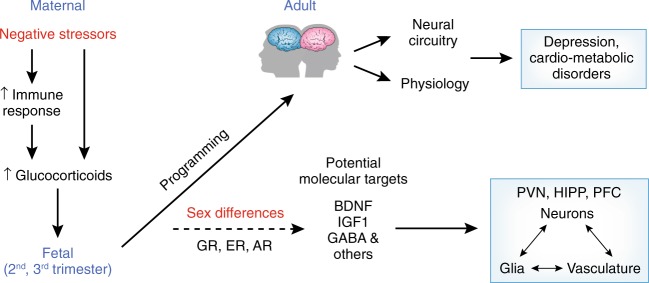Fig. 1.
Prenatal stress and inflammation programs the fetal brain to increase the risk for depression and cardiometabolic disorders in adulthood. Diagrammatic representation of programming factors that can permanently affect the developing brain. Accordingly, prenatal stressors and immune responses can act through elevations in maternal glucocorticoids; This can involve changes in expression of a number of molecular targets such as brain-derived neurotrophic factor (BDNF), insulin-like growth factor 1 (IGF1), gamma amino butyric acid (GABA) signaling pathways that can act on neurons, glia, or vasculature to permanently alter neural circuitry and physiology. Of importance, there are sex biases in this mechanism which may represent interactions between glucocorticoid receptor (GR), estrogen receptor (ER), and androgen receptor (AR) signaling

